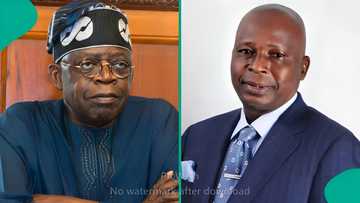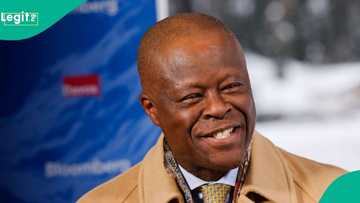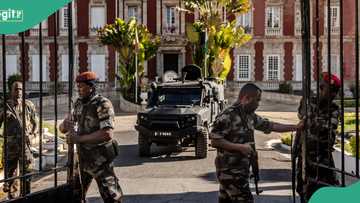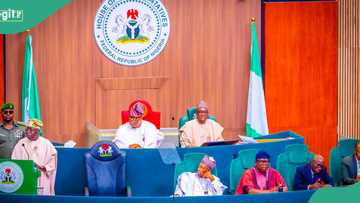The Kanu Dilemma and Nigeria’s Security Gamble, by Lekan Olayiwola
Editor’s note: In this piece, peace and conflict researcher Lekan Olayiwola writes about the growing tension around Nnamdi Kanu’s trial. He details why the government’s fear of unrest now shapes its idea of justice and what it means for Nigeria’s fragile democracy.
Nnamdi Kanu’s trial long ago stopped being about one man or one movement. The case now extends beyond personal guilt or innocence, touching deep questions of regional loyalty, federal legitimacy, and the emotional residue of postwar Nigeria. Every adjournment, ruling, or protest is read less as a point of law than as a signal of power.
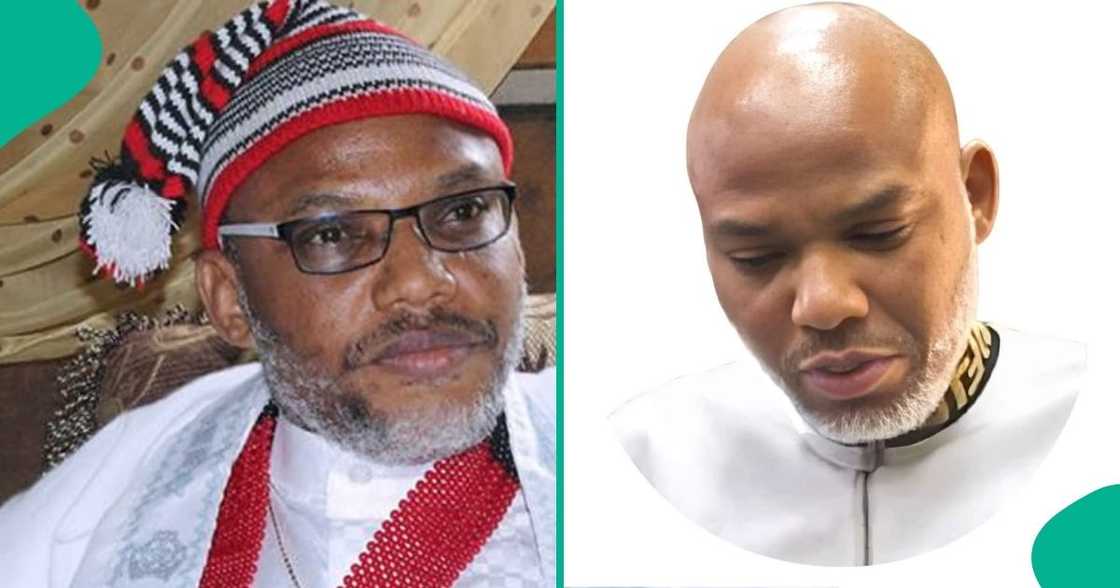
Source: Twitter
For the government, allowing full judicial independence has become risky: a lenient ruling could unsettle parts of the security and political establishment, while a harsh one might ignite unrest in the Southeast.
Caught between these fears, both the judiciary and the executive have settled into a cautious holding pattern, buying time under the guise of process, managing optics rather than enforcing justice. Each adjournment now feels less like due process and more like a rehearsal of fear.
Justice in suspension
In a healthy democracy, justice is the bedrock of security. In fragile states, it becomes its hostage. The prolonged detention of Nnamdi Kanu, leader of IPOB, has evolved beyond a legal matter; it now sits at the intersection of politics, power, and fear. What should have been a straightforward judicial process has turned into an emblem of how justice itself has been securitised in Nigeria.
Years after his arrest, rendition, and multiple adjournments, Kanu’s case remains suspended between legal procedure and political hesitation. Government insists he must face justice, yet its actions suggest an unease about what that justice might reveal. If a state claims to defend the law but cannot submit to it, it is no longer protecting order, it is protecting itself.
An acquittal might be read as weakness, potentially emboldening separatist sentiments in the Southeast. A conviction, on the other hand, could reignite anger and alienation, undoing fragile peace in a region already wary of federal authority. The case, once confined to the courtroom, has migrated into the bloodstream of national politics, where perception often outweighs law.

Read also
Nigerians react as Ned Nwoko finally breaks silence over alleged violence against Regina Daniels
The anatomy of fear
The difficulty in resolving Kanu’s case lies in a convergence of overlapping fears—political, regional, institutional, and even personal. At the political level, the government worries that any leniency toward Kanu might be interpreted as surrender.
In a country still defined by ethnic arithmetic, every move carries electoral and symbolic weight. For the Tinubu administration, managing this legacy case involves balancing national unity with political survival.
Institutionally, the security establishment perhaps views concession as precedent. If Kanu’s persistent agitation leads to compromise, it risks encouraging others to defy the state with similar resolve. Within the bureaucracy, delay becomes self-defence, a way to avoid responsibility while appearing vigilant.
Beyond these, there is leadership anxiety. Tinubu inherited this case, but he now owns its outcome. With his administration struggling to stabilise the economy and assert credibility, the prevailing instinct within his circle is caution — a reluctance to open new fronts while the state is already stretched thin by economic strain and insecurity.
Internationally, the memory of Kanu’s controversial rendition from Kenya still lingers. A transparent trial might reopen diplomatic wounds and challenge the legality of his extradition. Delay, therefore, becomes anesthesia numbing the wound without healing it. But nations do not heal by avoidance; they heal by courage.
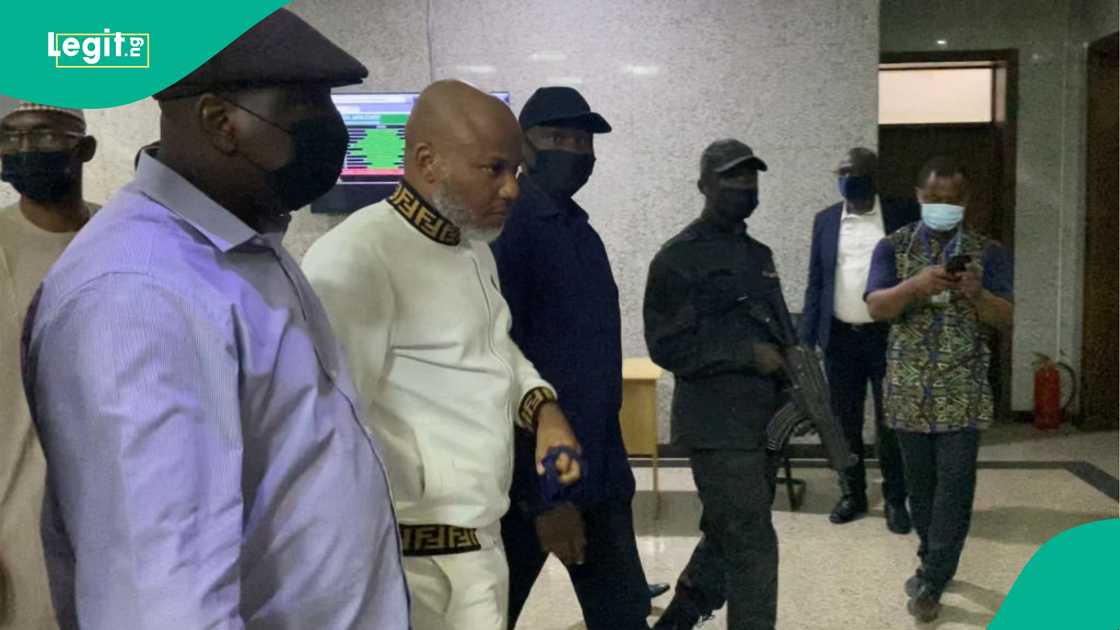
Source: Getty Images
The cost of fear
Treating justice as a national security risk comes at a steep cost. The longer Kanu’s case drags on, the more it erodes confidence in the rule of law. Nigeria’s judiciary, already seen by many as subservient to executive pressure, appears complicit in this paralysis.
Public surveys such as Afrobarometer consistently show that trust in the courts remains among the lowest in Africa, far behind faith in traditional or religious institutions. Each postponed hearing is another quiet referendum on whether the state still believes in itself.
The economic cost, though less discussed, is real. Prolonged detention and the security operations surrounding IPOB drain public funds that could be directed toward development or dialogue.
Politically, it deepens divisions and fuels a sense of regional marginalisation, confirming the very grievances that gave rise to separatist sentiment in the first place. Every delay adds interest to the debt of injustice and sooner or later, the country pays.
Justice as restoration, not retribution
Nigeria is not the first country to face a dilemma where justice and national unity collide. Spain’s handling of the Catalan separatist movement offers a cautionary but useful comparison. After years of imprisonment and confrontation, Madrid shifted toward limited amnesty and structured dialogue, not as capitulation, but as a strategy of containment through inclusion.
Ethiopia’s uneasy truce with Tigray rebels similarly reflected the painful recognition that no military or legal standoff can substitute for political accommodation. Even South Africa’s post-apartheid Truth and Reconciliation process illustrates that sustainable peace requires moral imagination, the courage to see justice not merely as punishment, but as repair.
Nigeria’s leadership could borrow from these lessons: that dialogue and due process are not signs of weakness, but of confidence in the institutions that define a modern state. The real question is not whether Kanu is guilty, but whether Nigeria’s institutions are capable of administering justice without fear. A credible justice system must act with both speed and integrity. Endless delay corrodes both.
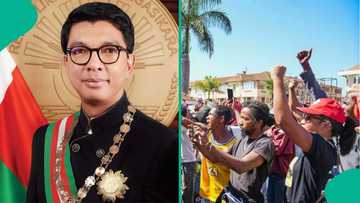
Read also
Madagascar's president in hiding after surviving alleged assassination plot, protest continues
If evidence exists, let it speak in open court. If not, the silence of delay becomes its own confession. And if the deeper problem is a regional sense of exclusion, then the solution lies beyond the courtroom in dialogue, equity, and governance reform.
To continue detaining Kanu indefinitely is to admit that Nigeria does not trust its own institutions. A state that fears its courts will be feared by its citizens. True stability does not come from silencing dissent but from creating conditions in which dissent need not turn to rebellion.
Toward a confident state
What Nigeria fears most in releasing Kanu is not disorder, but exposure. Exposure of the fragility of its institutions, of its political insecurities, and of a governance culture that confuses control with stability. Yet a confident nation does not fear the verdict of its courts. The true test of sovereignty is not how long power can silence dissent, but how calmly it can face the truth.
Allowing justice to run its course would send a powerful message that the Nigerian state still believes in the rule of law as the ultimate guarantor of security. Continuing to suspend it, however, implies that power, not principle, remains the true authority.
Lekan Olayiwola is a public-facing peace & conflict researcher/policy analyst focused on leadership, ethics, governance, and political legitimacy in fragile states.
Disclaimer: The views and opinions expressed here are those of the author and do not necessarily reflect the official policy or position of Legit.ng.
Source: Legit.ng


